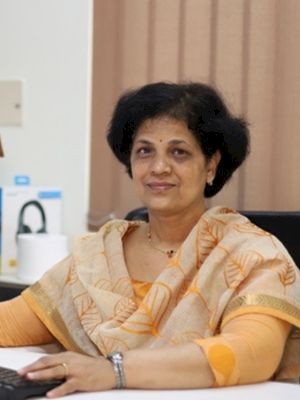004, School of Arts and Sciences

Spontaneous and inheritable genetic changes have a steadfast association with cancer. It is realized that flexibility within the regulatory mechanisms of transcription and translation can also create diverse landscapes of expression from a limited number of genes. Within this scope, perturbed cellular functions through epigenetically altered chromatin structure affects transcription - translation kinetics leading to consequent generation of non-canonical and non-coding RNA through alternative/back splicing, RNA recombination, read-through mechanisms result in altered transcripts and proteins. Differential splicing within same gene or between different genes leads to formation of novel variants or chimeric transcripts respectively, which can generate either a complex proteome or non-coding RNAs that further influences cellular transformation. Formation of chimeric/novel transcripts is increasingly found to associated with tumorigenesis, and will provide us a new facet of cellular regulatory processes. In general transcriptome variation which is commonly been found in different cancers contribute to tumor progression. Such transcriptome alterations are also evident at the protein level which ultimately defines functional capacity of cells. Our studies on chimeric transcripts in ovarian cancer thus will provide a novel approach to understanding such transcriptional plasticity.
Dr Sharmila Bapat's research involving the identification of quiescent, regenerative ovarian cancer stem cells, their transcriptional regulation, neo-angiogenesis, drug resistance and tumor dormancy are considered pioneering. Over the last several years her group has integrated basic biology approaches with computation to interpret ovarian cancer intra-tumor heterogeneity and cellular plasticity, besides identification of systems-based gene signatures and transcriptional networks. Dr Bapat has received several awards including ICMR-Prem Nath Wahi Award, DBT-National Woman Bioscientist Award, R. M. Tiwari Research Oration Award, TATA Innovation Award, Fulbright Fellowlowship (USIEF) etc. besides recognition as Fellow of the Indian Academy of Sciences (Bangalore), National Academy of Sciences (Allahabad) and Maharashtra Academy of Sciences (Pune). She serves on the Council of the Indian Academy of Sciences, Bangalore, and Board of Governers of NIT, Andhra Pradesh. Dr Bapat holds professional memberships of American Association of Cancer Research (AACR), Indian Association of Cancer Research (IACR), Indian Society of Cell Biology (ISCB), International Epigenetics Society and Indian Women Scientists Association.